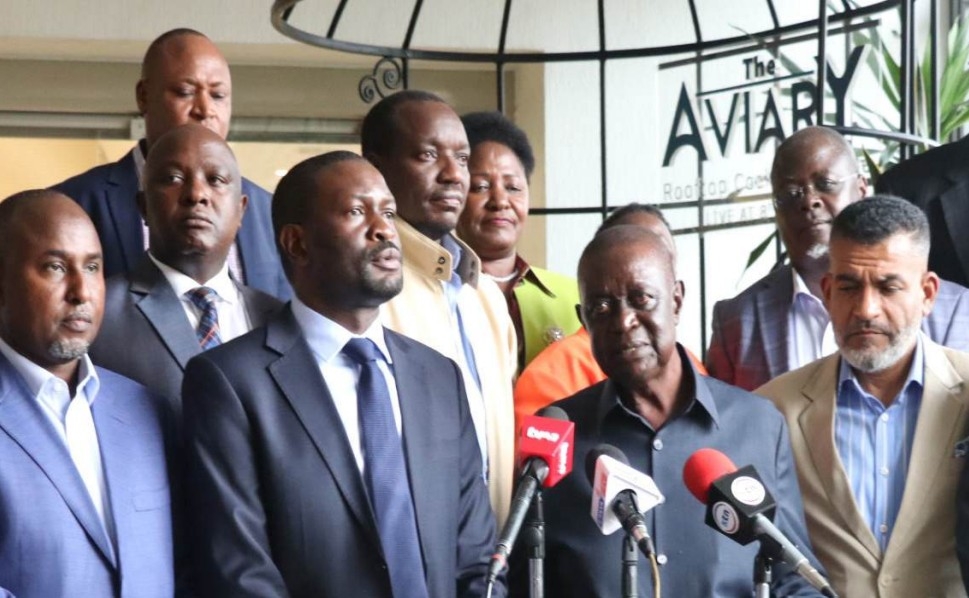
In the coastal villages of Kenya, fishers rise before dawn. They push their slender boat into the surf, each person gripping an oar. The elder at the stern calls out a rhythm, and the rowers pull together.
If one decides to paddle harder on the left or another drifts into daydreams on the right, the canoe veers off course or spins in circles. “Chombo hakiendi ikiwa kila mtu anapiga makasia yake (The vessel doesn’t go forward if each one is rowing his or her own way),” the elder warns.
That simple truth should guide our health
system: the Social Health Authority is a vessel carrying millions toward
universal coverage, and providers are at the oars. They decide whether to treat
patients promptly, submit clean claims and document procedures accurately, and
they depend on fair reimbursements to pay staff and keep the lights on. Some
row faithfully, guided by their oath to “do no harm”; others have dipped their
oars into murky waters, turning a lifeline into a cash machine.
Recent audits have shaken public trust. Health Cabinet Secretary Aden Duale revealed that SHA has saved the country Sh10.6 billion by rejecting fraudulent claims.
Hospitals billed for costlier procedures than those performed, charged for non-existent patients and converted outpatient cases into phantom inpatient admissions.
In response, authorities have closed or downgraded 1,029 facilities, shutting down 728 non‑compliant hospitals and downgrading 301 more, with additional closures planned.
One hospital in Bungoma allegedly claimed multiple caesarean sections on the same patient within days; another in Nairobi converted outpatient visits into lengthy admissions. SHA has paid out Sh53 billion of the Sh82.7 billion submitted in claims and approved another Sh6.4 billion pending payment, while rejecting Sh10.6 billion due to fraud.
The fight against fraud
is aided by a new digital system designed to flag anomalies, though the Auditor
General has criticised the Sh104.8 billion
contract for lacking details on which facilities are covered and how training
costs were determined.
While the crackdown is welcome, most clinics and hospitals are trying to serve patients and are being starved of funds. A survey by the Rural and Urban Private Hospitals Association of Kenya found that as of December 24, 2024, 80 per cent of contracted private facilities had not received any payments.
Only 20 per cent reported receiving any reimbursement, and even those payments were sporadic: 58 per cent got only a single payment, 36 per cent received two, and just six per cent received three.
Primary care clinics were hit hardest; only 35 per cent of level 2 and level 3 facilities received any payment. Faith-based providers fared slightly better, with 42 per cent of them paid compared with none for Ministry of Health facilities.
Even among
tertiary hospitals, 45 per cent remained unpaid. These
delays leave honest providers struggling to buy medicines, pay nurses and keep
operating theatres open. The frustration is compounded when legitimate claims
are rejected or delayed because paperwork is missing or ambiguous.
Fraudsters and bungled reimbursements feed off one another: dishonest actors justify their schemes by pointing to payment delays, while the government tightens controls that ensnare innocent providers.
A Swahili proverb
warns, 'Ukimtendea mwizi vizuri, mwishowe atakuibia (If you treat a thief well, he will rob you in the end)'. Indulging fraud—whether by looking the
other way or joining in—only invites more theft. Conversely, lumping all
providers together breeds resentment. The challenge is to separate the honest
from the dishonest without crushing everyone under suspicion.
The ethical imperative for providers is clear: claim only for services rendered. Resist upcoding, phantom admissions and ghost patients. Before signing an invoice, ask: Would I be comfortable explaining this claim at a public forum? Would I sleep well knowing I charged for a procedure I never performed? Medical schools and continuing education programmes need to emphasise billing integrity. Professional bodies such as RUPHA and the Kenya Association of Private Hospitals could establish peer‑review committees to vet high‑value claims.
Hospitals should invest in billing systems that link clinical notes to invoices, reducing errors that could be flagged as fraud. At the same time, the government must fix the payment bottlenecks; timely reimbursements are essential for clinics to keep doors open.
SHA should create
a clear “claims clarification mechanism” that lets providers correct errors
rather than having claims dismissed outright. The digital system must be
transparent—both in how it flags anomalies and in how providers can contest
those flags. Heavy‑handed downgrades or bed removals without explanation only
deepen mistrust.
Universal health coverage is a shared voyage, not a blame game. Providers and government need to paddle in sync. If each oarsman rows his own way, the boat goes nowhere. SHA cannot succeed if providers see the system as adversarial.
Transparency and accountability must run both ways: providers must
be open about their billing, and the government must be open about its audits
and payments. Public trust will grow when the average Kenyan knows that
hospitals are not enriching themselves at the expense of patients, and that the
state is not starving clinics into insolvency.
A culture of honesty within the health profession can spill over into
wider society. When providers demonstrate that they will not tolerate fraud
among their ranks, they set a powerful example. When they demand fair treatment
from the state—not as charity but as a right earned through their integrity, citizens
see how accountability works. And when they partner with patients to report
fraud and advocate timely reimbursements, they embody the notion that
health is a social contract.
Kenya is at a moral crossroads. The ghost hospital scandal shows what happens when greed takes the helm. Payment delays show the consequences of administrative failure. But we know from our fishing elders that a boat can only reach shore if everyone rows together. Providers: your professional oath extends beyond clinical care to stewardship of public funds. Every fraudulent claim you resist, every accurate invoice you submit and every whistle you blow is a stroke that keeps our health system moving forward.
Government: your duty is to honour genuine claims promptly and to investigate
fraud transparently. Citizens: demand accountability from both and remember
that tolerating a thief only invites more theft. If we row in unison, guided by
proverbs that celebrate honesty and cooperation, we can navigate the rough
waters of reform and arrive at a health system where trust replaces suspicion,
and every Kenyan can receive care without fear or favour.
Okumu is a Surgeon, writer and advocate of healthcare reform and leadership in Africa













